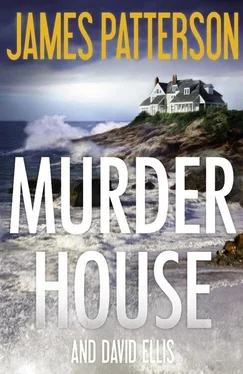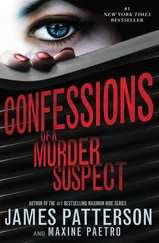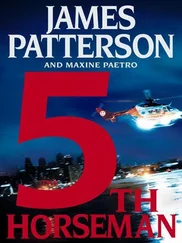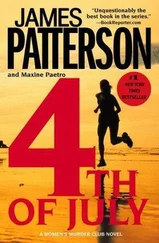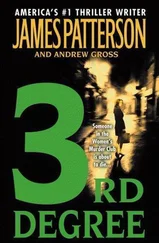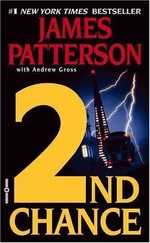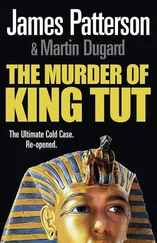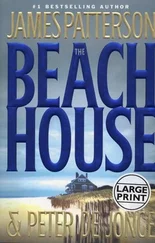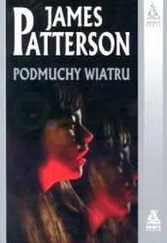And as long as I’m being brutally honest with myself: The truth is I’ve always felt alone, long before I was a cop. Always different. The “red sheep” of my family, I always called myself, because of my shiny red hair contrasted with the blond hair of Ryan and my parents. (I’m told my red locks came from a great-grandmother I never knew; I’ve only seen a black-and-white photo of her.) I was tall and athletic, while Ryan was stout and bookish. I was a restless troublemaker, while Ryan was calm and content. I was a rebel without a clue, in a loving, happy family, as if I somehow missed out on the one gene that allowed me to just fit in like everyone else.
I drive to Uncle Lang’s cottage on North Sea Road. The shrubbery remains well maintained, courtesy of the Realtor who’s listing it. The door is locked, but I have a key. The house has been cleaned, the rugs shampooed, the kitchen scrubbed, the fridge emptied of perishables. It feels weird being here without the clothes strewn about, the smell of dirty socks and fried food — the house as it became after Chloe left Lang.
Chloe, Lang said to me, when I saw him before he was wheeled into surgery. Look up Chloe. One of his last thoughts was the love of his life. But even they couldn’t maintain a relationship. What chance do I have?
This is the question I pose as I unscrew the bottle of Beefeater gin. I decide to be an optimist and view the bottle as half full, and thus available for my consumption.
Oh, look at me. I’m a cop with an attitude on her last chance, in a town that gives her sweaty, breathless nightmares almost every night, who drinks too much and can’t connect with members of the male species, and with an acting police chief who’s no fan of mine, who’s probably hoping to run me out by boring me to death with lousy assignments. I’m surprised Matty only walked out on me, instead of sprinting.
I find a stray coffee cup in the cupboard, pour myself some gin, and head into Lang’s second bedroom, where his remaining effects have been boxed up. A roomful of boxes is so lonely. His desktop computer still sits on a simple wood desk, with the keyboard on a lower shelf that slides out. I boot up the computer and stare at the screen as it requests a password. I feel a pang in my heart as I type the password — JENNAROSE — and watch the computer come to life.
Lang kept copies of his “murder books” — police reports, investigators’ notes, crime-scene photos, autopsy reports, interview summaries for a given case — in his home office; they’re packed up now and sitting in his garage. He also wrote up summaries of each of these cases in individual word-processing documents, narrative versions of the events from crime to conviction. He’d talked for years about writing his memoirs when he retired, hoping for a boost to his nest egg and also a way of looking back on his tenure, recording it for posterity. If they made it into a TV series, I could live with that, too, he used to joke.
There are over fifty files in his CASES folder, going back decades. I look for the one from 1995, the BB gun shooting at Bridgehampton School, but there’s no entry for it. I don’t know why I want to understand what happened there. Matty, asshole that he is, did have a point. But that’s me in a nutshell, the kind of cop I am — I have to fit every piece of the puzzle together. And no matter how minor a detail a school shooting from almost seventeen years ago may have been, it’s still a piece that doesn’t fit.
I stare at the home screen of the computer, the icons for the antivirus and the recycle bin, the Microsoft Word file folder. One small file sits in the corner, not in any folder, a Word document entitled CHLOE.
Look up Chloe, Lang said to me in the trauma center before he died. “Look up” Chloe? I assumed he meant contact her, let her know what had happened, ask her to come to the hospital.
Look up... Chloe, the document?
I double-click on the icon and wait for the document to pop up. A handful of seconds later, it appears. It’s a letter, dated two days before his death.
My dearest Chloe, it begins. I have to tell someone, and even now, with you gone from me forever, I want that someone to be you .
“Oh my God,” I say to the empty room as I read the letter. “Oh my God.”
“L-7.” The guard taps on the cell door with his pen. He gets no answer. “L-7,” he says again. “I’m doing the go-round.”
Noah raises his head out of his hands, blinks into the light.
“Where you gonna be after lunch, L-7?”
Noah shakes his head. He’s been back in A-Block for three weeks now, after spending over a month in the prison hospital and having multiple surgeries at Phelps Memorial, where he was kept under heavy security and cuffed at the ankles to his bed. Since returning to A-Block, Gallery L, cell number 7, he has only left his cell for required trips — the mess hall, classes, and the occasional psych visit. He doesn’t have a job, still not having regained a sufficient range of motion in his hands to do much of anything, and won’t go to the prison yard or the gym. So even though inmates are allowed out of their cells in the afternoon, after lunch, he has stayed within this cramped, dreary space, staring at the walls, for almost the entire day. He sleeps, he supposes, but in the zombie-like daze in which he finds himself, it’s hard to distinguish between sleep and wakefulness, between dream and reality. His life has become a meaningless fog. There is no hope or despair, no fear or happiness.
“L-7?” It’s one of the “white shirts,” the senior correctional officers, joining the other CO. “You in pain, L-7? You know we have meds for you. All you have to do is tell us who did this to you.”
The warden cut off pain medication as soon as Noah was released from the prison hospital, trying to get Noah to implicate the Aryan Brotherhood in the attack. Everyone knows who attacked Noah, but they can’t prosecute them or even write up a disciplinary ticket without Noah’s cooperation.
Noah’s no snitch. He’d like nothing more than to stick it to Eric Wheaton and his buddies, but it’s just not in him to rat someone out. Growing up with his buddies, that was the one rule you didn’t break. You might bend the law or outright fracture it; you might fail to do unto others as you would have them do unto you — but you never snitched.
“That’s your choice, L-7.” The lieutenant and the other CO leave.
Time passes in slow motion. Noah goes to the mess hall for lunch but doesn’t touch his food; he’s lost almost twenty pounds since the attack.
Later in the afternoon, another CO shows up at his cell. “Mail, L-7,” he says, and he reaches through the bars and drops a single envelope into the small bucket reserved for such things. “Sorry for your troubles.”
He’s sorry? Noah looks up at the CO, who gives a grim shake of the head and moves down to the next cell. They read the inmates’ mail in Sing Sing, unless it bears the seal of an attorney-client communication, so the sorry must pertain to the mail he just received.
How, he thinks, could things possibly get worse?
Noah’s limbs are stiff when he gets up; he’s sat in the same position for almost three hours straight. He reaches into the bucket and grabs the envelope, perforated at the top by whoever read it. When he opens it, there is a Post-it that simply says Sorry and then a newspaper article, folded up. He unfolds it with a knot in his stomach and reads the headline: MANHATTAN SOCIALITE’S DROWNING RULED SUICIDE. Along with the article is a photo of Paige Sulzman in a sundress at some fancy gala.
Читать дальше
